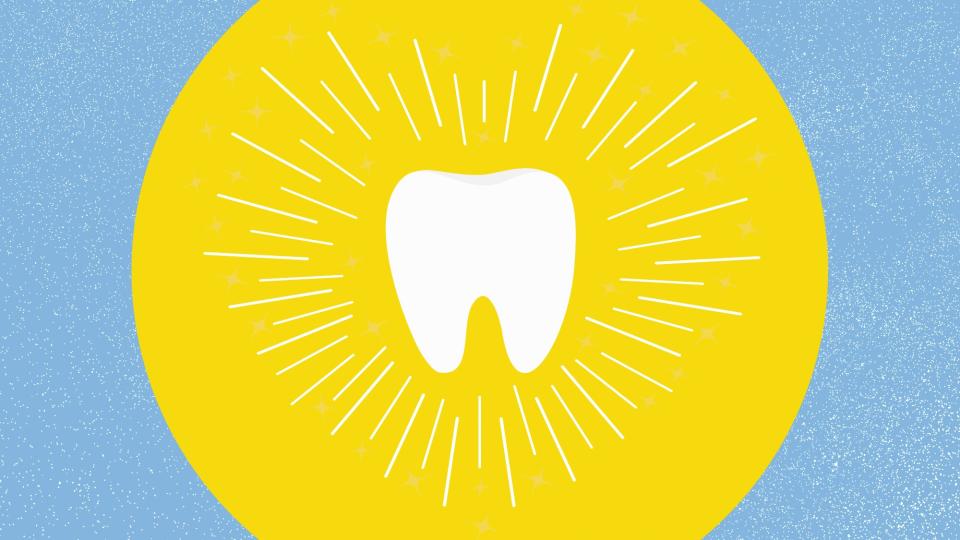4 Ways Beyond Brushing to Keep Your Teeth Healthy
Nearly a third of U.S. adults are dissatisfied with their oral health, according to the American Dental Association. Pain and discomfort from cavities, grinding, receding gums and bad breath can take a toll on nearly every aspect of our lives. "Oral health is essential for our well-being," says Benjamin W. Chaffee, D.D.S., M.P.H., Ph.D., an associate professor at the UCSF School of Dentistry in San Francisco. He notes that our mouths are windows into the health of our entire bodies—oral troubles, for example, can be an indicator of other conditions like diabetes. They also allow us to express ourselves and eat nutritious food. And regular brushing and flossing may not be enough. Add these simple strategies to your daily routine.

Getty Images / worldofvector
Ditch the E-Cigs
While vaping may be less dangerous for oral health than smoking, e-cigarettes still deliver toxins like nicotine that can reduce blood flow and impair the gums' natural healing process, says Chaffee. A recent study by University of Connecticut researchers found that e-cigarette users were 76% more likely to develop gum disease and 67% more prone to oral bone loss than people who had never vaped.
Opt for Fiber
Put down the breath mints. If you're one of the 25% of people who battle bad breath (aka halitosis), the foods you do—or don't—eat can make a big difference. A small Swiss study found that people who ate a high-fiber meal of wheat bread and an apple had significantly less halitosis for 21⁄2 hours afterward than those who had a low-fiber meal of white bread and applesauce. High-fiber foods typically require more chewing, so researchers suspect they're better able to scrub away stinky bacteria lingering on your tongue and teeth.
Take Time to De-Stress
Easier said than done, sure. But chilling out can pre- vent tooth grinding and jaw clenching—and the pain, headaches and enamel wear they can cause, suggests a 2019 study of daytime grinders. (Fact: More people do this while awake than asleep.) Angelina R. Sutin, Ph.D., a professor of behavioral sciences and social medicine at Florida State College of Medicine, says using a journal to note what's going on in your life when you catch yourself clenching or grinding can help ID triggers.
Steep Some Tea
Sipping unsweetened tea, especially green, black or oolong, could be even better than water at washing away cavity-causing bacteria, suggests a study published in the journal Archives of Oral Biology. "Tea is a natural source of fluoride and contains polyphenols, compounds that inhibit plaque bacteria and their ability to produce acid in the mouth," says Christine D. Wu, Ph.D., a professor of pediatric dentistry at the University of Illinois at Chicago College of Dentistry.

